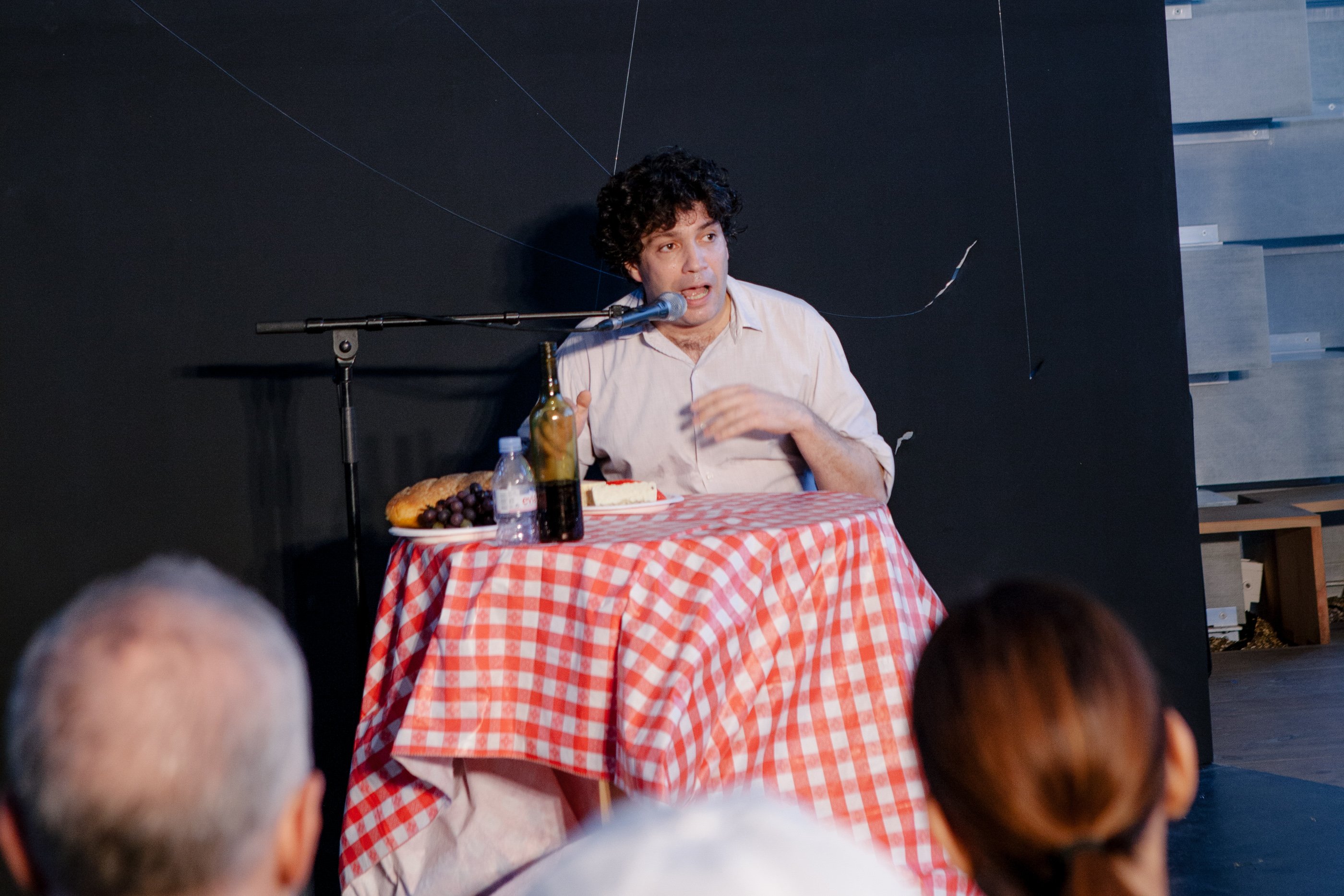
The latest installment of the Serpentine Gallery’s annual “Park Nights” performance program was conceived by New York-based artist Brian Belott in conjunction with Billy Grant, Jamian Juliano-Villani, Matthew Thurber and Tyson Reeder.
Friday night’s performance was a surreal experience. The live work was site-specific, created for the 2016 Serpentine Pavilion in London, designed this year by the Danish architectural practice Bjarke Ingels Group.
The pavilion is framed by stacked fiberglass boxes arranged in such a way as to give the impression of a solid brick wall being unzipped. The lines and curves of the structure gave way to the concave performance space, but, as the bizarre Dada-inspired performance took hold, could perhaps be more aptly described as marking the entry-way to an alternate dimension.
Brian Belott’s performance engaged with the space of the pavilion in different ways. Just as the psychedelic architecture plays tricks on your eyes, his piece saw the solid space of the Pavilion become fluid: at moments it was transformed into a stand up comedy club, a remote sanatorium in the Himalayas, and a high fashion runway show.
Belott’s performance was initially perplexing. While the show as a whole recalled the antics of 20th century theatre of the absurd, the overwhelming sense from watching him was hypnagogic: the audience observed as verbal lucidity collapsed into Belott’s trademark nonsense vocals, intermittently finding coherence, before descending into gibberish once more.
Ironically, the times his voice rose most noticeably to intelligibility were in murmured excerpts from James Joyce’s most obfuscating work: Finnegan’s Wake.
The show was not easy to grasp: the gathered spectators looked towards one another, as though asking whether or not it was all right to laugh, an apt reminder of performance art’s ability to make you feel uncomfortable.
Photo Yousef Eldin, courtesy of Serpentine Galleries.
The more we watched, the more Belott’s stream of consciousness soundscape began to disrupt the established links between words and their meanings. In some ways the rhythm and shape of the sounds successfully communicated abstract thoughts and feelings, in other ways it allowed meaning to dance further and further away. The tighter we seemed to grasp at its coherent strands, the further meaning slipped our reach, making our efforts as futile as the exercise of trying to recall a dream that has already melted away.
Following Belott’s opening sequence the show’s rationality further unraveled: viewers were given no time to recover before being plunged into a dystopian future, as a mad scientist danced in and out, doling out incomprehensible suggestions in a slapstick performance that was at times acutely satirical and at others absolutely nonsensical.
A further discomfiting facet of the performance was that pieces of the program worked towards disrupting the established distance between artist and critic. At one point those gathered were asked to move from their seats to sit on the floor as a tinfoil clad musician rhythmically thrummed in the background. The audience was clearly uncomfortable with this, with most acquiescing to the shift in perspective only once it was clear that everyone else was also complying, and many dithering on the floor only until it seemed acceptable to retreat to their established territory.
Clothing from the collective George de George Hair cuts Hair. Photo Yousef Eldin, courtesy of Serpentine Galleries.
Towards the close of the performance, cacophony descended into chaos as clothes by the collective George de George Hair cuts Hair were debuted in a peculiar fashion show, behind which a partially obstructed Belott actually lit his hair on fire.
The humor-filled, satirical performance night was a talking point, and is hopefully indicative of an exciting summer program at the Serpentine.